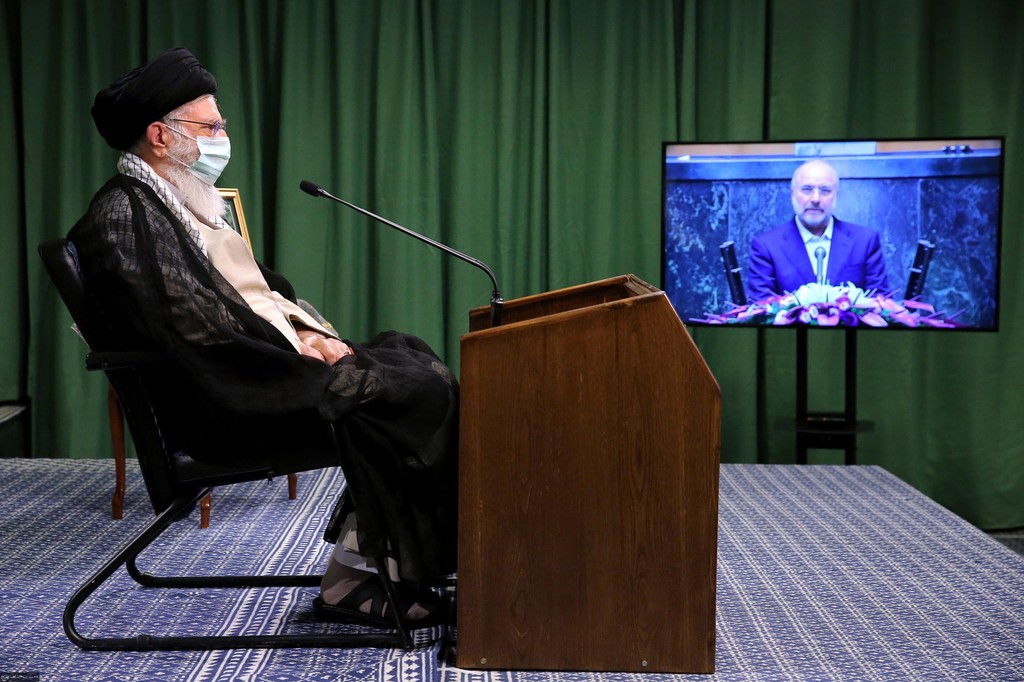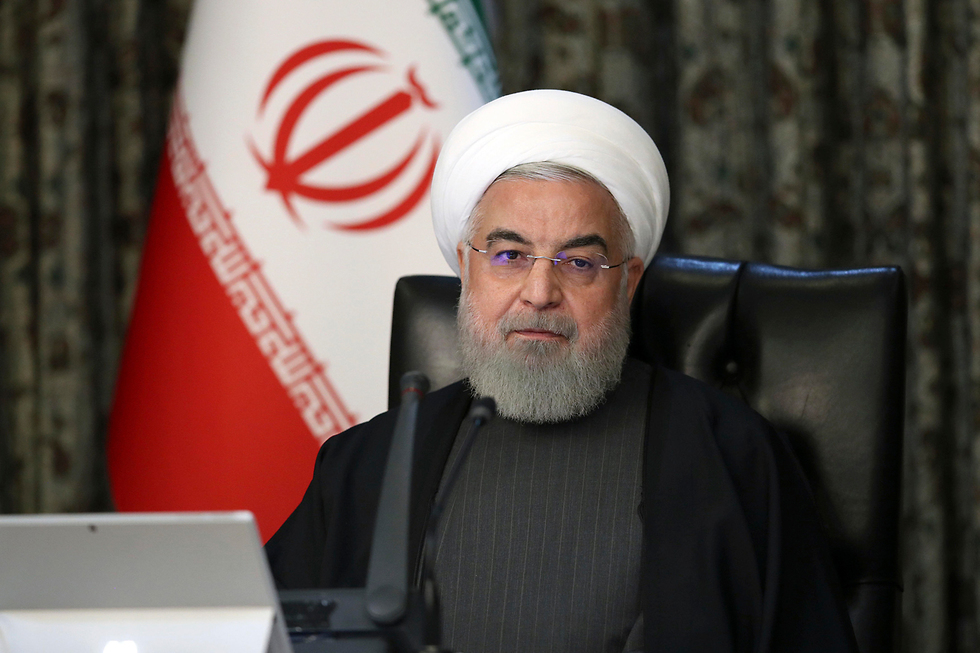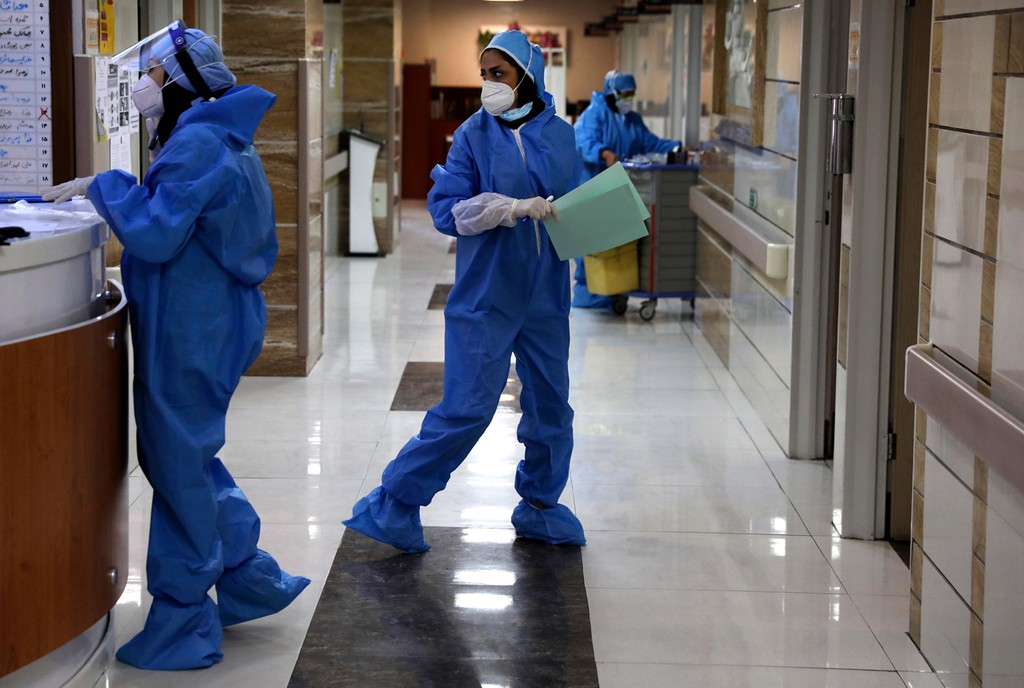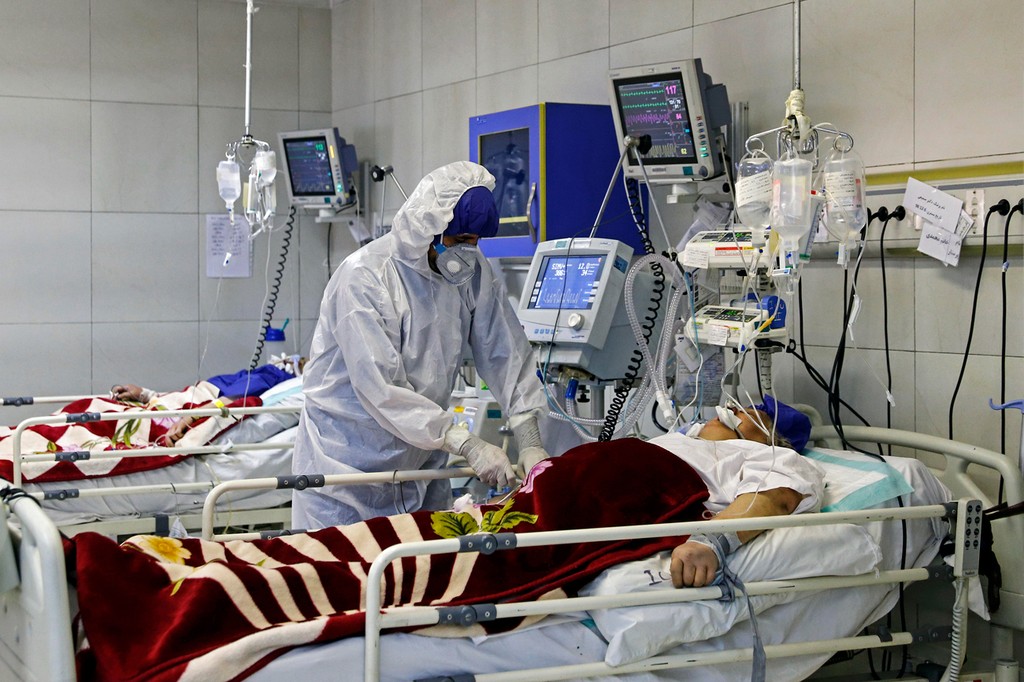Getting your Trinity Audio player ready...
Experts in neither Tel Aviv nor Washington were able to understand upon what data Iranian President Hassan Rouhani based his claim that 25 million Iranians have contracted the coronavirus, with 35 million more patients expected.
According to a senior U.S. official, the numbers were specifically meant for the White House.
Two-thirds of Iran's population of 80 million are in danger of contracting the virus, according to Rouhani. There is no medicine or treatment to be had, their hospitals are overwhelmed and the United States must be more considerate.
Iranian TV is broadcasting grim images of coronavirus patients waiting in long lines outside medical facilities, reporting that local food stores, including imports from China and the Persian Gulf, are dwindling.
Rouhani wants the U.S. to leave the Islamic Republic alone, at least until the pandemic ends.
According to American officials, it is no coincidence that the Iranian president was the one chosen to make that announcement. He has managed to cultivate the image of a "moderate," and Western nations might take these calamitous numbers seriously even without data to back them up.
Khamenei's office is filled with papers and reports warning that the Americans are trying to spur Iranian youths to go out into the streets.
Three young Iranians were saved from hanging this week, after they were snatched by paramilitaries allied to the regime and dragged into a bandwagon from the middle of a protest.
The thing to remember is that usually those sentenced to death are not given any legal aid. In most cases, the families of the condemned are contacted to come and pick up the bodies after the hanging.
But this time, the regime decided to give the three a second chance, possibly as a nod to Washington. In other words, if the U.S. eases its diplomatic and economic grip on Iran, sentences can be reduced. If not, such detainees will be executed after the next round of court hearings.
4 View gallery


Iranian Supreme Leader Ali Khamenei wears a protective face mask while making an address during the coronavirus pandemic
(Photo: EPA)
Tehran has also announced a new series of restrictions to halt the second wave of the coronavirus besetting the nation.
Schools, universities, cafes and even public parks have been closed. Travel between cities has been prohibited, with trucks cruising around neighborhoods, handing out milk, bread and apples.
Even so people are still ordered to go to work - at least those who have not lost their jobs - with protective face masks and no stops along the way.
Gen. Hossein Nejat, a close confidant of Supreme Leader Ali Khamenei and head of personal security for Iranian officials, was recently made chair of the Intelligence Organization of the Islamic Revolutionary Guard Corps.
This secret agency is tasked with protecting Tehran and neighboring cities – the center of the regime's power, and his new appointment is a sign that it is expecting another round of violent protests soon.




